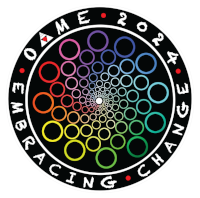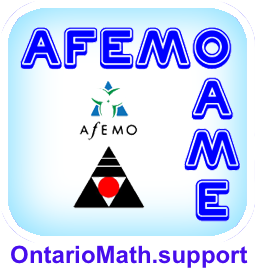President's Message - December 2004
Remediation

GORDON COOKE
gordonbcooke@gmail.com
Keep your eyes open for the PRISM project from the Ministry of Education. As with all such projects, the first goal is to get a cool acronym to represent what you are doing: Programming Remediation and Intervention for Students in Mathematics. This is a good one because it actually says what the project is about and suggests a logo.
Remediation is on everyone's radar these days. A recent article spoke to the rise in the number of students paying for private after school tutoring: Rise of a New Class System (Toronto Star Oct 3, 2004) "The fear of failing standardized tests in school is pushing more families to pay for private tutoring All this extra help is taking a social toll, dividing families along financial lines", writes Theresa Boyle. Quoted figures in the article see private tutoring tripling in the past six years. Much of the blame is laid at the feet of the previous government for introducing a new and compressed curriculum without adequate teacher training.
In my special education studies, I came across an article which speaks to the nature of remediation in the context of learning disabled students. This article describes the concept of number sense as being as important to mathematics learning as phonemic awareness has been to the reading research field. "Understanding the concept of number sense and relevant research from cognitive science can help the research community pull together fragmented pieces of earlier knowledge to yield a much richer, more subtle, and more effective means of improving instructional practice. This article demonstrates how the number sense concept can offer a useful framework for conceptualizing interventions that will significantly enhance mathematics instruction for students with mathematical disabilities." http://www.ldonline.org/ld_indepth/math_skills/gersten_dyscalculia.html
My fear here is that tutors and others working on remediation will see this as a call for more practice on "basic" skills. Have a look at a remediation workbook from some of the commercial programs and you will see pages of similar questions designed to "automatize operations" (I'm not sure if I made that word up or read it somewhere) Once such skills are automatized then cognitive resources are freed up to handle higher order problems.
Instead I would see effective remediation as focusing on basic understanding and concepts. Before practising multiplication, ensure that students have a deeper understanding of what multiplication is, how it differs from addition, how different models of multiplication allow us to understand its properties. What is a fraction? How are they different from whole numbers? Where are they on the number line? What happens to the value of a fraction when one of the numerator or denominator changes? This is the kind of number sense that I see being called for in the ldonline article. That's the kind of remediation I can live with.
A final related idea: Has anyone experimented with "spiral homework?" This came up in a conversation I had with Stewart Craven and we both thought it had some merit. It might work like this: Today's homework will consist of questions 1,2 and 3 from page 10 which solidify the basic understandings of today's learning. Also questions 4 and 5 from page 8 which ask you to apply yesterday's learning. Finally, question 6 from page 6 that asks for some deeper thinking and inquiry based on the learning from two days ago. I think it might help reduce the need for remediation. Try it and let me know.
Previous Message:
Technology in the Classroom
Next Message:
Imaging


















 Like us on FaceBook
Like us on FaceBook